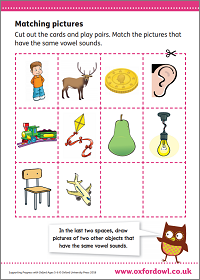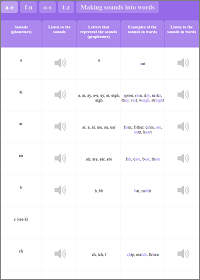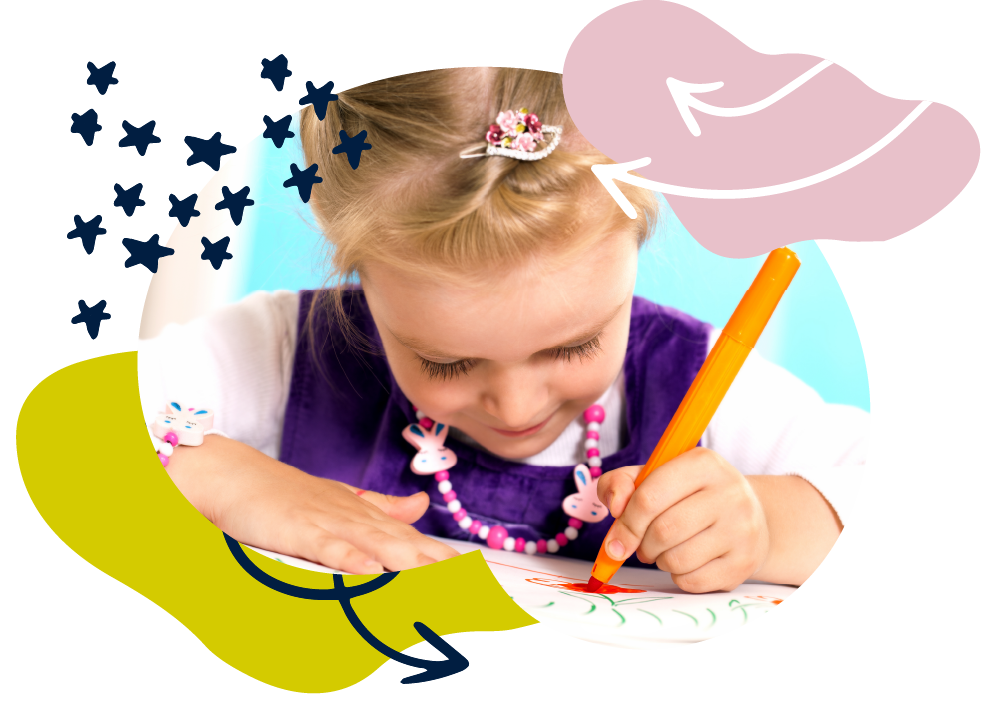Fun learning activities for 5-year-olds
Your child will probably have started synthetic phonic activities at school so finding time to enjoy playing with letters and sounds in games at home will really help them with that.
Other activities can help your little ones to develop key skills such as speaking, listening and numeracy. If you’re not sure what your child’s doing in school, you can find out more about it in our school section and click on their year group to disover more.
We’ve pulled together our top five ideas here and hope you’ll have fun testing them out!
Games and activities
1. Rhyming games
- Listen to and join in with rhyming stories, like Julia Donaldson’s The Gruffalo.
- Play rhyming games, or sing an action rhyme.
- Make silly rhyming jokes. For example: What do you call a smelly elephant? A smellyphant! What do you call an elephant watching TV? A tellyphant!
2. Phonic games
- Play snap or bingo with letters and sounds. Write letters on pieces of papers or cards, to create homemade flashcards. Make two for each letter. Use them to play snap. You could also create a bingo card with eight boxes – each one containing a letter. Put the flashcards into a pile, facing down and take it in turns to be the bingo caller.
- Play phonics fishing! Use homemade letter flashcards, add a paperclip to each, tie a magnet to some string and a stick and ask your child to ‘fish’ for a particular sound.
- Play ‘I spy’ games (for example, ‘I spy something beginning with a…’, using the letter sound) when you are out and about. For help with letter sounds, take a look at our sound chart.
Activity: Vowel sounds

Practise phonics by matching the pictures to the vowel sounds.
Activity: Phonics guidance

Learn how to say all the phonics sounds (phonemes) and letters.
3. Memory games
- Play ‘Kim’s game’. Put a few items on a tray (for example, a crayon, an apple, a building brick, a toy car). Then look, cover, remember and check!
- Talk about, photograph or write out some ‘events’ from something you have done together – can your child remember the correct order?
- Go shopping – try to remember the list together!
4. Listening games
- Play games such as ‘Simon says’ – party games are often good ways to practice speaking, listening, and memory skills, without them even noticing!
- Listen to music and talk about the instruments being played – find pictures on the internet together.
5. Action games
- Make a puppet theatre with cardboard boxes or a towel over a chair and encourage your child to make up or retell a story to you (or any willing family members!).
- Have lots of fun dressing up with clothes and props at home so that your child can dress up as a character and act out favourite stories. You can find lots of cheap props and clothes for dressing up in charity shops.
- Play games such as ‘What’s the time Mr Wolf?’, but write the times down for them to read instead of saying them.
6. Tactile games
- Use magnetic letters to spell names and simple words on the fridge or radiator.
- Use modelling clay to make your child’s name or simple words like mum.
- Enjoy jigsaws together and chat about finding the right pieces!
7. Screen games
- Watch TV programmes linked to books and then read the books afterwards. Little Princess, Katie Morag, and Charlie and Lola are good places to start. Talk about what they like or don’t like about the characters.
- Find story-telling sites like Little Kingdom, story-telling TV programmes, or story apps for your phone.
8. Car journey games
- Play ‘The cook’s cat is an amazing cat/beautiful cat/clever cat/daft cat…‘ and so on, and then make up your own versions (for example, ‘The doctor’s dog…‘).
- Play this noisy version of the car game, ‘Who can spot…?’. It’s great fun – but check out with the driver first before you start this one! Decide on a noise, or a word to call, when you spot the things you’re looking out for. For example, ‘Bang!’ for a yellow car, ‘Buzzz!’ for a bus, and ‘Wow!’ for a bird.
- Listen to an audiobook.
Video: Car journey games
Get ideas for fun and educational car games for kids! Educational author and parent Isabel Thomas shares her ideas to relieve the boredom of long car journeys.
9. Out and about activities
- Ask your child to find the things you need to buy when out shopping by reading the labels on products together.
- Check out your local library or community centre to find out what special activities or clubs are running.
- Try to do a few visits or find some information together to link with the topic or project work at school.
10. Reading books of all kinds together
- Carry on reading books of all kinds to and with your child: picture, pop up, information, poetry, eBooks, print books… and the levelled books brought home from school. Video or record your child reading them for fun!
- Why not choose a book from our free eBook library to share on-screen together?
